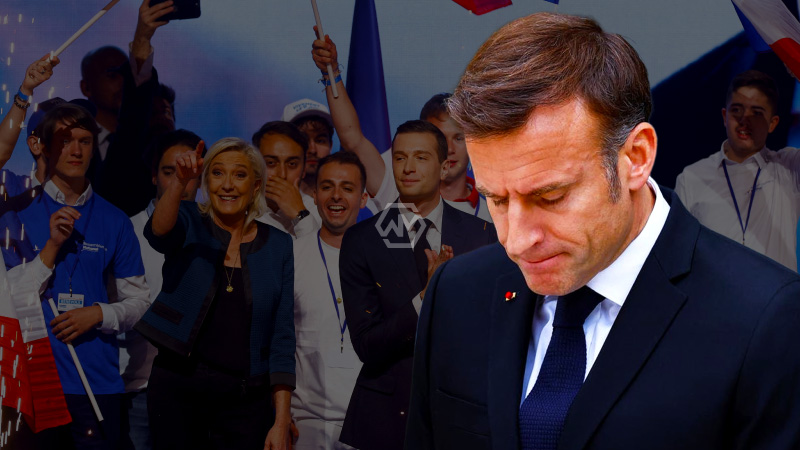- Marine Le Pen’s National Rally secures 33% in the first round of French elections.
- Protests erupt in Paris as left-wing voters oppose the far-right’s success.
- Calls for anti-far-right alliances intensify ahead of the second round on July 7.
The first round of the French elections has sent shockwaves through the political landscape, with Marine Le Pen’s National Rally and its allies securing 33% of the vote. This result positions the far-right party well ahead of the left-wing New Popular Front, which garnered 28%, and President
In response to Le Pen’s success, thousands of left-wing voters took to the streets of Paris, gathering at Place de la République to voice their frustration and fear of a far-right ascendancy.
France in Turmoil: Le Pen’s Far-Right Victory Sparks Protests and Alliances
The recent French elections have seen a dramatic shift in the political landscape, with Marine Le Pen’s National Rally achieving a surprising 33% of the national vote in the first round. This success has placed the far-right party ahead of the left-wing New Popular Front and President Emmanuel Macron’s centrist coalition, which managed only 20%. The high voter turnout, the largest for a parliamentary election in nearly forty years, highlights the intense public interest and the critical nature of these elections.
Marine Le Pen’s call for an absolute majority to appoint Jordan Bardella as prime minister has resonated with her supporters, while also inciting fear among her opponents. In Paris, thousands of left-wing voters gathered to protest the far-right’s rise, marking a significant moment of public dissent. The protests at Place de la République underscore the deep divisions within French society and the widespread apprehension about a potential far-right government.
Amidst this political upheaval, key figures like Raphaël Glucksmann have emphasized the need for an anti-far-right coalition. Glucksmann has framed the upcoming second round as a “referendum” on the future of France, urging weaker candidates to step aside to bolster the chances of defeating the National Rally. This call for unity across the political spectrum reflects the high stakes of the election and the potential consequences of a far-right victory.
Despite the turmoil, European markets have remained stable, with the French CAC 40 stock exchange and the euro both rising. Investors seem reassured by the likelihood of a hung parliament, which could prevent either extreme from gaining an absolute majority. Former Prime Minister Édouard Philippe has also called for a united front against both the far-right and far-left, highlighting the importance of democratic and republican values in this critical electoral moment.
The outcome of the second round on July 7 will be pivotal for France’s political future. As the nation grapples with the rise of the far-right, the calls for unity and strategic alliances will be crucial in shaping the next chapter of French governance.
“History is looking at us and judging us tonight, and each one of us must take responsibility. This is no longer just a legislative election: it’s a referendum.”
– Raphaël Glucksmann



